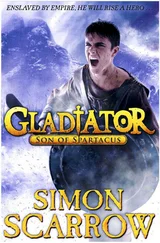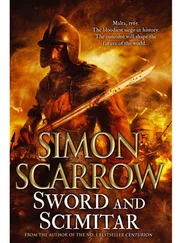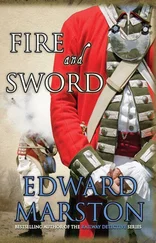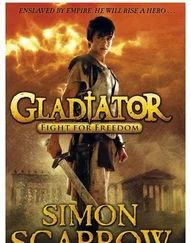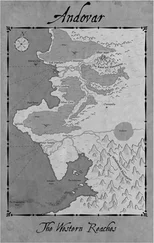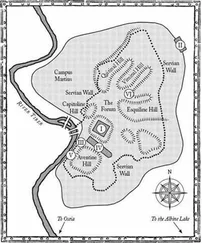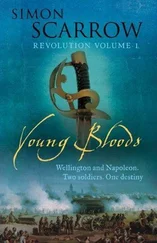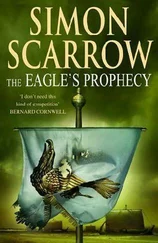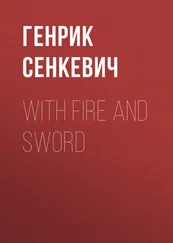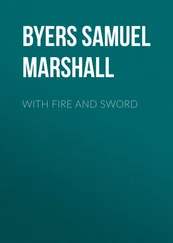A dull boom echoed up the slope and he saw a puff of smoke some half a mile from the foot of the ridge. Abruptly several more guns opened fire and kicked up small explosions of dirt, rock and small branches as the grapeshot tore up the ground along his skirmish line. After a few more rounds the French guns fell silent and a moment later the enemy skirmishers advanced to duel with their British counterparts. A steady crackle of musket and rifle fire drifted up the slope as the skirmishers of both sides contested the foot of the hill. Then, as weight of numbers began to tell, the British fell back, scurrying from cover to cover as they fired on their pursuers. A deep drum roll and tinny blare of trumpets carried across from the French lines as the assault columns edged forward and began to tramp up the slope behind their skirmishers.
‘And here they come,’ Somerset muttered casually.
There was a low fold in the ground just in front of the British cannon and the riflemen took shelter there as the other skirmishers ran back to their battalions and joined the main battle line. Then, as the first of the French skirmishers came into plain view, closely followed by the heads of the assault columns, the British guns opened fire. Arthur watched with keen interest the effects of the three howitzers he had deployed alongside the other guns. They were firing the newly developed shells designed by an artillery officer named Shrapnel, which were fused to burst over the heads of the enemy, spraying out scores of small iron shards. As Arthur watched, the first of the shells burst in a white puff over the leading ranks of the nearest column and at once a score of men went down.
‘Not bad,’ he mused, impressed by the effect. He could imagine the moral effect of being struck down from above as well as from the front, and made a mental note to fully endorse Shrapnel’s innovation when he had the opportunity. Meanwhile the columns tramped forward remorselessly, straight into the withering hail of the case shot blasting out from the British guns. As each cone of shot struck home it was as if a giant fist punched into the French columns, knocking men down like skittles. Despite the terrible carnage Arthur could not help admiring the élan of the enemy as the gaps were swiftly filled with fresh men and the columns continued up the slope, urged on by the relentless beating of drums and shouts of encouragement from officers and sergeants.
As the front rank of the enemy came within musket range, the British gun crews fired one last shot and then fell back, running for the cover of the hill crest. At once the French began to jeer and shout their contempt and their pace increased now that they no longer had to fear being cut down by case shot. Ahead of them lay the abandoned guns and a short distance beyond them a small group of British officers on horseback.
Arthur raised his arm, glancing left and right to make sure that he had the attention of the two brigades either side of him, and then swept his arm forward. Orders were bellowed out and the men of the two brigades rose up from the ground, dressed their ranks and then advanced over the crest.To the French it looked as if they had risen up from the earth, and the assault column’s pace faltered even as the slope began to level out beneath the leading ranks.
The British officers barked out the command, ‘Halt! . . . Make ready to fire!’
The long thin line, two men deep, stopped dead, and then over two thousand muskets were lowered so that their muzzles pointed down the slope at the French, no more than fifty paces away.
‘Cock your weapons!’
A ragged clicking rippled along the line, and then there was a pause, and a stillness that reminded Arthur of the tense anticipation between the flash of lightning and the crash of thunder.
‘Fire!’
The roar was like a multitude of hammers striking a sheet of steel, and flame and smoke burst out along the British line. From his position slightly above and behind his men Arthur saw the terrible impact of the first volley as the heads of the French columns collapsed, leaving a crumpled line of blue-coated bodies across the bloodstained ground.
‘Fire by companies!’
The flanks of the British brigades advanced round the heads of the French columns and then a rolling series of volleys crashed out as one company after another fired into the enemy. The French struggled to deploy from column into line amid the chaos of tumbling bodies and the whirr of lead passing through the air all around them. There was only the briefest of delays between the volleys, and the near continuous destruction being wrought on the French ranks shattered their cohesion and broke their spirit. Inevitably, they began to give way. Succeeding companies refused to advance into the place of their fallen comrades, and even began to edge back, down the slope.
As the commanders of the British battalions became aware that the enemy was recoiling, they gave the order to cease fire and fix bayonets.With a rattle and clatter the bayonets were fastened on to the ends of the muskets and then the red lines began to advance again. Arthur was struck by the difference between the two armies. The French, loud, brash and vociferous as they advanced, each man cheering, or singing along to the Marseillaise or another of their patriotic tunes. Facing them, the British soldiers were calm, ordered and quite silent, functioning like an implacable machine, so that when the final order to charge echoed along the crest of the hill, their sudden roar was quite terrifying and Arthur felt the hairs on the back of his neck rise in icy response.
The redcoats burst into a run, rushing down on their enemy, mouths wide open as they bellowed their meaningless roars of aggression. The more fearless of the Frenchmen stood their ground, bayonets lowered and boots braced, while others just froze in terror. Many more fell back then turned and ran as the British infantry burst upon them, stabbing with their bayonets and smashing the butts of their muskets into the heads and bodies of the enemy. It was a sharp, savage fight as Arthur looked on. The French were knocked down and impaled without mercy, adding still more corpses to those strewn along the hillside.
In less than a minute, it was over.The French soldiers were streaming down the hill and the British were left masters of the slope. Now it was their turn to shout their contempt for the enemy, and they bellowed insults and whistled mockingly before the sergeants called them to order and re-formed each company before marching it back over the crest of the hill. Meanwhile the artillery crews ran forward to their guns and recommenced firing after the fleeing mob of French soldiers until they reached the foot of the hill and scattered across the open ground beyond. The guns fell silent and Arthur surveyed the slope in front of his position.The attack had cost Junot as many as five hundred men, he estimated. In amongst the heaps of bodies lay an occasional redcoat, but the British losses had been slight indeed.
Even so, the French recovered quickly, and already a fresh column, preceded by the usual screen of skirmishers, was advancing up through the stunted trees that dotted the approaches to the hill. This time, though, Arthur could see that they were accompanied by light artillery pieces to provide close support for the attacking column. Clearly Junot had learned to respect his enemy.
The second attack suffered the same fate as the first, and most of the French guns were knocked out long before they could be deployed on the slopes. Once more the French battalions were badly cut up by British artillery before being stopped dead by a continuous fusillade of musket fire and then breaking as a wave of bayonets swept down the slope towards them, though this time they had exchanged a series of volleys with the redcoats and caused over a hundred casualties amongst Arthur’s two brigades. Satisfied that there was no immediate threat to his position, Arthur trained his telescope on the east ridge and was pleased to observe that the French were being repelled there as well. So far, the British infantry had held their nerve and fought the enemy in fine style, as Arthur had always been confident they would. He lowered his telescope with a satisfied nod and returned his attention to the fight on Vimeiro Hill.
Читать дальше

